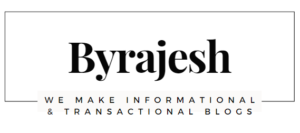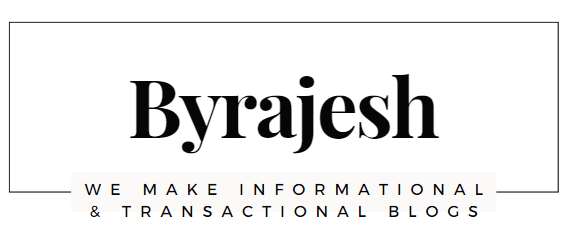What is Moonlighting & Is Moonlighting legal in India?
Table of Contents
ToggleWhat is moonlighting?
Moonlighting is defined as working outside of one’s primary job description, to make extra money, gain experience, or simply enjoy what they do. Second Job is usually taken up after normal work hours meaning it’s mostly an evening job that is associated with the Moon.
This practice is legal in some countries, while it is illegal in others. In fact, many countries consider moonlighting illegal.
Why do people moonlight?
Moonlighting emerges in the workplace as a result of employee unhappiness with current pay, experience and benefits. People who do moonlighting can help them keep up with the demands of both work and home life, while gaining additional skills or earning more money. It seems like the practice is becoming more common during the COVID-19 pandemic.
Work From Home has given people the extra time to moonlight because they are saving time on travel, many are using that time to monetize.
In fact, according to a study conducted by the World Bank, nearly half of all workers in India engage in some form of moonlighting. This includes freelancing, working part-time jobs, and even doing multiple jobs simultaneously.
Is moonlighting ethical?
Moonlighting is often viewed as unethical because it involves working outside of one’s full-time job. However, many people do it anyway. Some moonlight to supplement income while others use it as a way to gain experience. Others even take advantage of the flexibility to pursue personal projects.
Indian Law Factories Act of 1948, prohibits Dual employment in India. But It only regulates laborers who work in Factories meaning there is no specific Law for IT employees which prohibits Moonlighting.
Most important point here is your primary employer’s Job contract and its terms & conditions decide whether or not you can pick up the second assignment.
Legally, there is a green light for moonlighting.
How to handle moonlighting ethically?
Here are five tips to help you navigate the world of moonlighting.
- Understand what moonlighting is. Moonlighting is defined as working outside of your normal employment hours. This could mean working evenings or weekends, or taking on side jobs that don’t conflict with your primary responsibilities.
- Know your employer’s policies. Your employer might allow you to moonlight, but they might not. Make sure you understand your company policies regarding moonlighting. If you want to moonlight, ask permission first. Once you get the permission, you must always disclose your second job to your primary employer.
- Keep track of your earnings. When moonlighting, it’s important to keep track of your earnings. You should report your earnings to your employer each pay period. Also, make sure you include those earnings in your W-4 form.
- Don’t overwork yourself. While moonlighting can be beneficial, it shouldn’t interfere with your regular schedule. Be careful not to burn out.
- Consider your employer’s perspective. Think about whether or not your employer wants you to moonlight. They might not like the idea of you working outside of your office hours. Make sure your Secondary job is not in competition with your primary employer.
Why are some employers worried about Moonlighting?
The problem with moonlighting is that it leads to low productivity. If employees spend most of their time working for one employer, they won’t be able to focus on their main task. And if they’re not focused, how can they do their best work?
Others think that employees should never work for anyone else while they’re employed by them. Still others worry that moonlighting could lead employees to take shortcuts.
There are certain risks associated with moonlighting. These includes,
1) Conflict of Interest
2) Breach of Confidential Information
3) Misuse of Company resources (Using Office Laptop)
4) Absent
Some companies are trying to put an end to the trend. In fact, there are even laws against it.
How do employees get into trouble while Moonlighting?
Take a minute & think what are all possibilities employees can be caught by their employer while Moonlighting. Yes your guessing is correct, Provident Fund Contribution.
While you are joining IT companies during your on-boarding process, employees have to provide their Aadhaar card, PAN Card, Last 3 months of your previous employer’s payslip, Experience letter etc…
If you decide to moonlighting without considering your current employment contract, you will definitely get into trouble.
Problem is, in your second company also you have to provide the same details to do a background check.
Under the Same UAN both companies will create the PF accounts simultaneously and start to deposit their PF Contribution. Here Digital India plays a vital role, our Aadhaar & PAN cards are linked together.
EPFO runs a Duplication algorithm daily to check if someone has paid double accidentally in this case it will find out where contributors are multiple in individual account. It will be reported to companies, such actions will result in termination of employment.
Why is the moonlighting term getting viral recently?
Wipro Ltd., one of India’s largest information technology companies, fired 300 employees for moonlighting in a domain outside their job description. This is not the first time such incidents have happened in the IT industry.
Indian IT giants Infosys & IBM have made it clear that the practice of dual employment is in violation of the employee code of conduct and stating that such actions will result in contract termination.
The issue of moonlighting has become quite prevalent in the IT sector in recent times. Now IT firms increase scrutiny against dual employment.
Is there a way to moonlite without breaking any rules?
Yes, you can work as a Consultant, tutoring students online, Blogging Or you could join a co-working space where you can meet potential clients.
But keep in mind that you must always disclose your second job to your employer. If you don’t, you’ll face legal consequences
Portals providing Moonlighting Opportunities:
FIVERR
UPWORK
TOPTAL
FLEXJOBS
JOOBLE
SIMPLYHIRED
FREELANCER
Is Moonlighting the Future?
Who knows these are changing times, work culture is changing, people want to have Plan B with everything that they do. It is also normal to have multiple sources of income especially in an unstable economy. What should employers do? Companies have to set performance expectations & draft a policy that protects Confidential Information, define conflicts of Interest and inform employees where the company draws the red line.
Welcome news is, Under certain conditions Swiggy has announced an industry first ‘Moonlighting policy’ by allowing their employees to work on other projects after working hours.
As per the latest news, Infosys CEO Salil Parek has said “formulating a policy that protects company’s Confidential Information and at the same time allowing their employees to do Moonlighting”.
Meet Rajesh

I am Rajesh from India, the founder and owner of byrajesh.com
Currently I am working as an Automation Test Analyst in an MNC Company, while working in a comfortable position I always think of my future and next move.

COPYRIGHT ©2022, BY byrajesh. ALL RIGHTS RESERVED.


